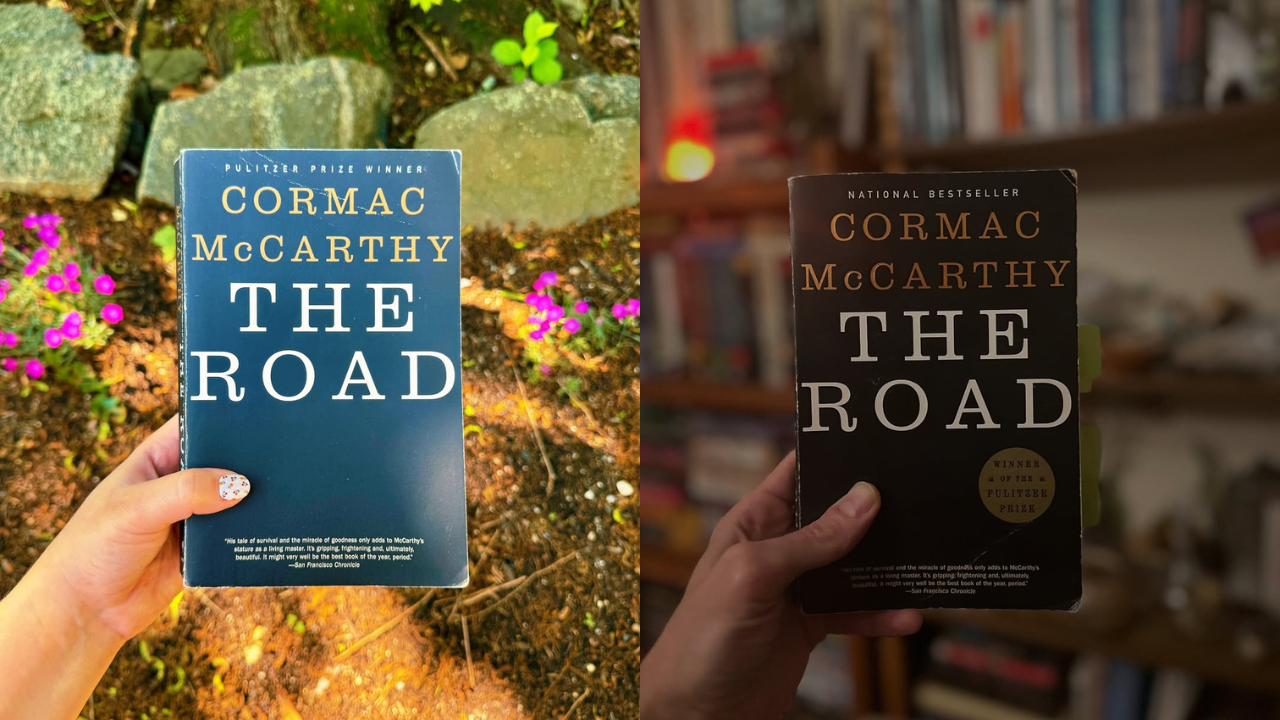
How a Single Line From This Book Made It Immortal (Picture Credit – Instagram)
Cormac McCarthy’s ‘The Road‘ is a bleak, haunting novel that grips the reader not with grand events, but with the quiet devastation of survival. Set in a post-apocalyptic world, the novel tells the story of a father and son walking through a burned America, struggling to stay alive with barely any food, shelter, or hope. The book is filled with sorrow and silence, yet it is in one single line that the novel’s emotional depth is most clearly expressed: “You forget what you want to remember, and you remember what you want to forget.”
This line holds the weight of the entire book. It captures grief, trauma, memory, and the peculiar way the human mind works when it is desperately trying to hold on.
The Paradox of Memory
The human brain is selective, often working in ways we cannot control. In moments of trauma, people may find that their memories fail them precisely when they want clarity. A face, a sound, a smell—these are the details we may long to keep. Yet they fade. Meanwhile, the memories we try to block out remain lodged in our minds. Pain lingers. Regret repeats itself. In this single sentence, McCarthy distills this psychological truth into something both simple and devastating.
A Father’s Burden
Throughout the novel, the father wrestles with the weight of memory. He remembers the world before it burned. He remembers his wife, who gave up on hope and chose death. He does not want to forget these things, yet they slip away. What remains is the fear. The violence. The deep exhaustion. His struggle is not just about keeping his son alive but also about holding onto fragments of a past life that is already fading.
His burden is not only physical, but emotional. The memories he cannot escape keep returning in dreams and brief flashes. He tries to shield his son not only from danger but also from the ghosts of a world that no longer exists. The son, too young to remember life before the collapse, becomes both a comfort and a reminder of everything that was lost.
Survival and Forgetting
In a world so far removed from comfort or normalcy, memory becomes both a curse and a necessity. To survive, the characters must forget how things used to be. Yet forgetting makes survival feel empty. The father and son keep moving because stopping would mean death. They carry a literal and metaphorical fire, one that represents not just hope, but humanity.
What McCarthy expresses through this line is the cost of staying alive in a world stripped of beauty. The body may keep going, but the mind clings to fragments. Often, it is not joy or love that surfaces, but pain. That is what makes this line so piercing. It reminds us that in moments of darkness, the mind can betray us.
The Universality of the Line
While the context of ‘The Road’ is extreme, this line resonates far beyond the book’s dystopian setting. Anyone who has experienced loss, trauma, or heartache knows the truth of it. We often wish we could hold on to voices we once heard, places we once loved, or the way a certain day felt. Instead, we are haunted by moments we wish we could erase.
This line also reveals the quiet power of fiction. Through ten words, McCarthy captures something universally human. Readers from different countries, backgrounds, or ages find themselves reflected in this line. That is why the book, despite its grim premise, continues to endure.
A Book of Few Words, Endless Echoes
McCarthy’s sparse style gives every line added weight. There are no quotation marks in the book. Sentences are clipped. Dialogue is minimal. Yet within that sparseness is enormous meaning. “You forget what you want to remember, and you remember what you want to forget” is not just a passing remark in the story. It is a truth that defines the father’s struggle and anchors the novel’s emotional weight.
Even years after reading the book, many recall this line more than any plot point. It stays with you because it speaks to something unspoken. It reflects how hard it is to grieve, how difficult it is to live with memory, and how fragile the mind becomes under pressure.
‘The Road’ is not an easy read. It offers no real comfort and provides few answers. Yet it has become one of the most unforgettable books of the 21st century because of lines like this. McCarthy’s ability to say something profound in such few words is what turns the book from a survival story into something far greater. In just ten words, he captures a lifetime of sorrow, making the novel eternal in the minds of its readers.